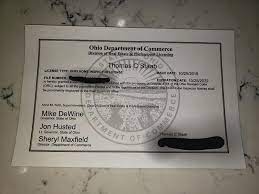
It is important to learn about the company before buying a REIT. Find out about its history and how it compares to the competition. This will enable you to decide if it will return good dividends. It is important to be aware of the potential risks associated with REITs.
Tip: Buy REITs
If you are considering investing in REITs, it is important to consider the quality of the company and its earnings before making a decision. The company's earnings are made up of any dividends and funds from its properties. The fees associated with investment should be considered. Diversification is another important aspect to consider. Some REITs have a high level of investment in certain types of properties, which can increase the chance of a loss. You can reduce your risk by investing in multiple REITs and diversifying your portfolio.
A brokerage account is one of the best ways you can invest in REITs. This process only takes a few minutes and allows you to buy and sell publicly traded REITs. These investments can pay large dividends. Some REITs also have the option of keeping your funds in a tax-favored account, which means you won't pay taxes on the money you receive as distributions.
Dividends subject to taxes
Investors should be aware that dividends are subject to taxes when purchasing REITs. REITs' dividends may also include capital gains. Capital gains occur when a company sells real property assets. The amount due will depend on whether an investor qualifies under special tax concessions. If the investor doesn't qualify, the dividend rate will apply.

You can save taxes by investing in REITs without close ownership. Avoid REITs without a five year dividend history. Reitually, no more than 50% can hold REITs. The Tax Cuts and Jobs Act provides 20% deduction for income passed through.
Liquidity
Liquidity is an important consideration for REITs. It helps them to withstand unanticipated changes in their assets' value. REITs can increase their assets' value by distributing part of their earnings to investors. During the recent downturn, REITs have taken advantage of lower interest rates to increase their cash balances and improve their liquidity. REITs shouldn't be considered a safe investment because volatility is part of the business.
Additionally, REITs provide liquidity for investors as shares can be bought and sold on the stock exchange. Investors can make changes to their investment strategy or access cash with this liquidity. Real estate is not a correlated asset, which may make REITs attractive to investors.
Risks associated with REITs
While REITs can provide steady income in the form dividends, investors must remember that REITs do not offer risk-free investment options. This is because REITs are traded just like stocks and can go down in value. Although they are relatively safe investments, they must compete with other high-yield investment options, which could cause REIT stock prices to decline.
Another important risk is interest rate risk. Rising interest rates can lead to higher borrowing costs for REITs which could impact their cash flow. However, these risks can be mitigated by the fact that REITs tend to have solid balance sheets. Managers of these companies will try to maintain a healthy degree of leverage. Investors need to pay attention to this.

When to Buy
It is important to assess your financial situation before you make a decision to invest in REITs. In addition, you need to understand the tax consequences of investing in REITs. REITs are not the best investment option for those who want to maximize their tax advantage because they generate most of their income through dividend income.
A major challenge facing REITs right now is the uncertainty surrounding the master lease expirations. This uncertainty is often driving investors to sell. Investors' fundamentals have suffered as a result. Despite this uncertainty, most investors neglect to consider the fact that short term issues have minimal impact on long-term prospects.
FAQ
How do I eliminate termites and other pests?
Termites and other pests will eat away at your home over time. They can cause damage to wooden structures such as furniture and decks. This can be prevented by having a professional pest controller inspect your home.
What is the cost of replacing windows?
Replacement windows can cost anywhere from $1,500 to $3,000. The total cost of replacing all your windows is dependent on the type, size, and brand of windows that you choose.
Should I rent or own a condo?
Renting could be a good choice if you intend to rent your condo for a shorter period. Renting lets you save on maintenance fees as well as other monthly fees. However, purchasing a condo grants you ownership rights to the unit. The space is yours to use as you please.
How do you calculate your interest rate?
Interest rates change daily based on market conditions. The average interest rate for the past week was 4.39%. Divide the length of your loan by the interest rates to calculate your interest rate. For example: If you finance $200,000 over 20 year at 5% per annum, your interest rates are 0.05 x 20% 1% which equals ten base points.
How can I fix my roof
Roofs can leak due to age, wear, improper maintenance, or weather issues. Minor repairs and replacements can be done by roofing contractors. Contact us to find out more.
Should I use a mortgage broker?
A mortgage broker can help you find a rate that is competitive if it is important to you. Brokers have relationships with many lenders and can negotiate for your benefit. Brokers may receive commissions from lenders. Before you sign up for a broker, make sure to check all fees.
Statistics
- This means that all of your housing-related expenses each month do not exceed 43% of your monthly income. (fortunebuilders.com)
- Private mortgage insurance may be required for conventional loans when the borrower puts less than 20% down.4 FHA loans are mortgage loans issued by private lenders and backed by the federal government. (investopedia.com)
- When it came to buying a home in 2015, experts predicted that mortgage rates would surpass five percent, yet interest rates remained below four percent. (fortunebuilders.com)
- It's possible to get approved for an FHA loan with a credit score as low as 580 and a down payment of 3.5% or a credit score as low as 500 and a 10% down payment.5 Specialty mortgage loans are loans that don't fit into the conventional or FHA loan categories. (investopedia.com)
- 10 years ago, homeownership was nearly 70%. (fortunebuilders.com)
External Links
How To
How to become an agent in real estate
The first step in becoming a real estate agent is to attend an introductory course where you learn everything there is to know about the industry.
Next you must pass a qualifying exam to test your knowledge. This means that you will need to study at least 2 hours per week for 3 months.
After passing the exam, you can take the final one. To be a licensed real estate agent, you must achieve a minimum score of 80%.
These exams are passed and you can now work as an agent in real estate.